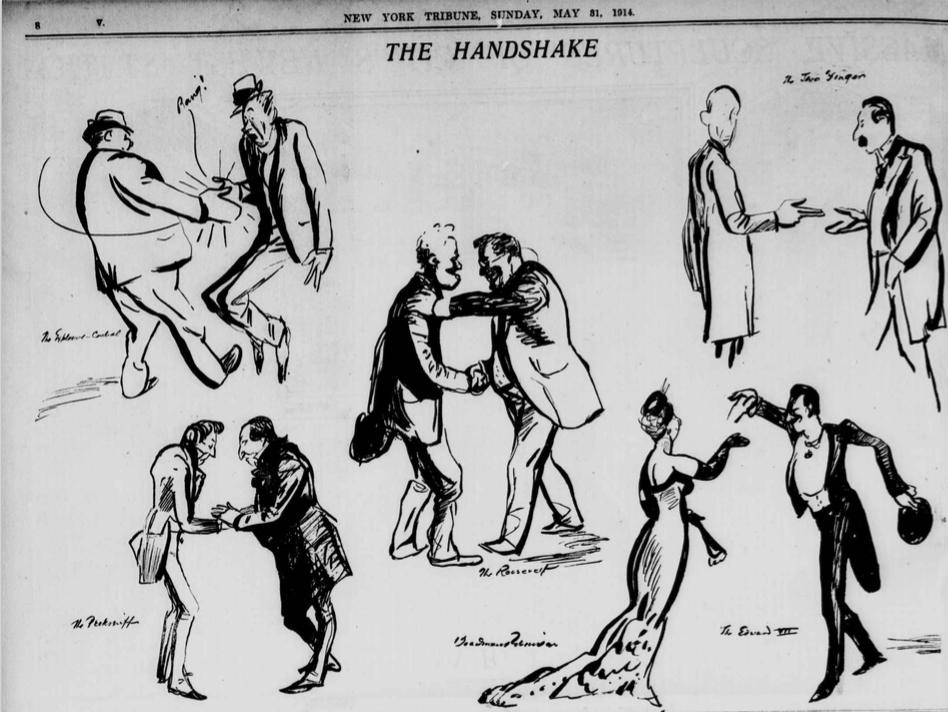Teach This Poem, though developed with a classroom in mind, can be easily adapted for remote learning, hybrid learning models, or in-person classes. Please see our suggestions for how to adapt this lesson for remote or blended learning. We have also noted suggestions when applicable and will continue to add to these suggestions online.

Look closely at this image of a handshake.
The following activities and questions are designed to help your students use their noticing skills to move through the poem and develop their thinking about its meaning with confidence, using what they’ve noticed as evidence for their interpretations. Read more about the framework upon which these activities are based.
-
Warm-up: (think-pair-share) What does kindness mean to you? How do people show kindness?
-
Before Reading the Poem: Look closely at this image of a handshake. What do you notice in the image? What stands out to you about the handshake? Who is present in the image and who is missing? How does it compare to modern handshakes?
-
Reading the Poem: Read the poem "If You Knew" by Ruth Muskrat Bronson silently. What do you notice about the poem? Annotate for any words or phrases that stand out to you or any questions you might have.
-
Listening to the Poem: (enlist two volunteers to read the poem aloud): Listen as the poem is read aloud twice, and write down any additional words and phrases that stand out to you. Or, you may opt to listen to the audio of the poem.
-
Small-group Discussion: Share what you noticed in the poem with a small group of students. Based on the details you just shared with your small group and the resources from the beginning of class, what does the speaker want? How does the speaker define kindness and what gestures embody kindness?
-
Whole-class Discussion: Who might the speaker be addressing in the poem? What makes you say that? What does this poem say about loneliness and/or friendship?
-
Extension for Grades 7-8: Write a script about what happens next in the poem. Share your script with your classmates.
-
Extension for Grades 9-12: Continue learning about Ruth Muskrat Bronson’s poetry and activism. Read the 1923 speech that Muskrat Bronson gave to President Coolidge. Muskrat Bronson’s speech is in response to the “so-called Indian Problem.” What modern problem might you want to write about? Write a speech about it.
“Ruth Muskrat Bronson was a Native American rights and education activist in the first half of the twentieth century. For decades she worked tirelessly advocating for better opportunities and for social justice for all Native people.” Watch this short documentary about Bronson, including interviews with her family.
This week’s poetic term is symbol, or an object or action that stands for something beyond itself. Read more.
